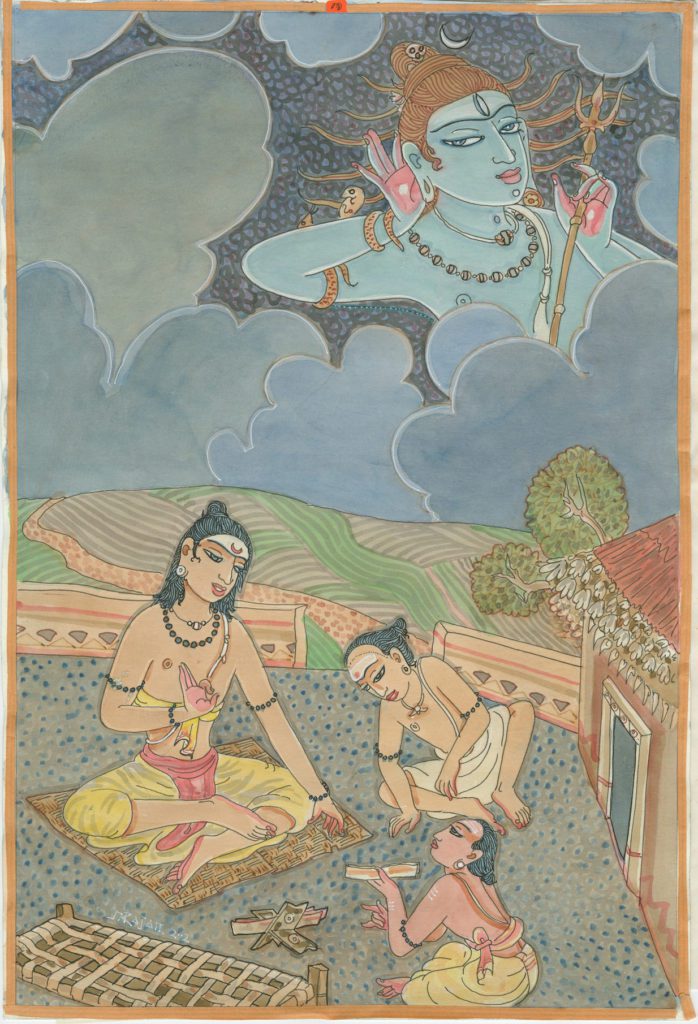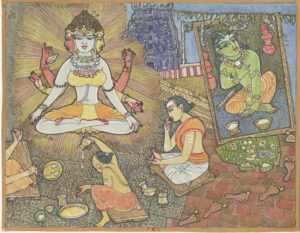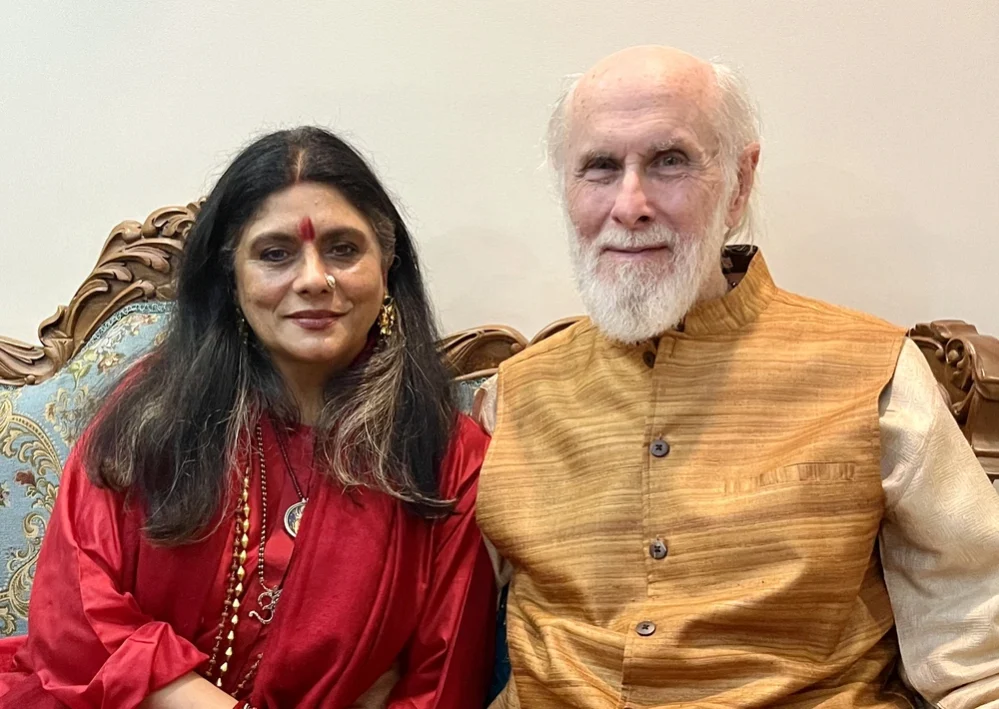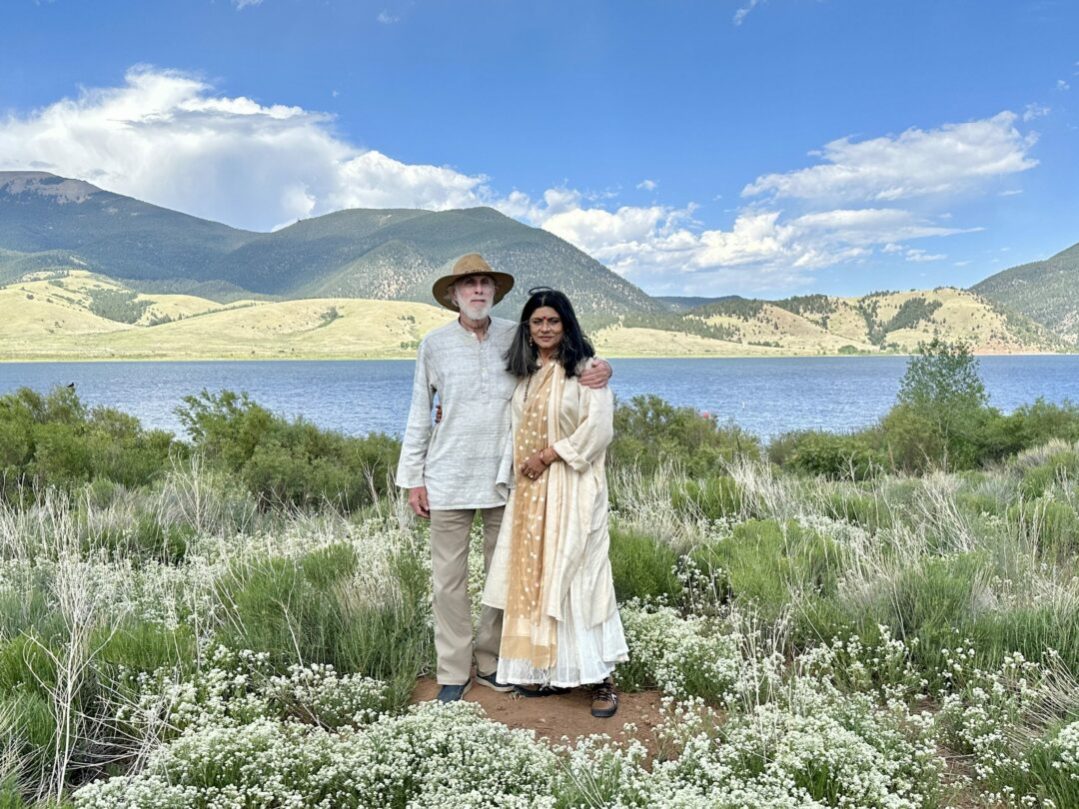 Ayurveda, the Vedic science of life for all living beings, defines health and wellbeing in terms of Svastha. Svastha means abiding (stha) in one’s own Self (Sva). Yet to understand this simple principle, we must recognize that this Vedic abiding in our own nature reflects the Vedic view of the universe.
Ayurveda, the Vedic science of life for all living beings, defines health and wellbeing in terms of Svastha. Svastha means abiding (stha) in one’s own Self (Sva). Yet to understand this simple principle, we must recognize that this Vedic abiding in our own nature reflects the Vedic view of the universe.
Svastha implies living in harmony with the world of nature (Prakriti), but also in harmony with our own inner nature. This means aligning our body, prana, senses and mind with the Self or Atman within. Such a definition includes physical, psychological and spiritual wellbeing, not just health in the modern medical sense. This Self is the very core of who we are and constitutes the underlying energy and consciousness behind the entire cosmos.
As Ayurveda is a branch of the Vedas, an Upaveda, this definition of wellbeing applies to all the Vedic Sciences including Yoga and Vedanta, and the principles of Vedic living overall, as discussed in the Yamas and Niyamas of the Yoga Sutras. The pursuit of Self-realization is the ultimate goal of life for all living beings and the source of the highest wellbeing and happiness for all. It is called Moksha or the ultimate freedom from sorrow. This inner wellbeing is what Vedic Counseling teaches us to manifest.
Svastha is the ultimate state of inner balance. This means the balance of our doshas as Vata, Pitta and Kapha, the balance of our Agni or digestive fire, the balance of our Prana or vital energy, the balanced use of our senses and motor organs, emotional balance in the mind, balanced judgment and discernment in the intellect, and an inner balance in which we don’t let the outer world disturb us.
Wellbeing and Self-realization
This Ayurvedic definition of wellbeing doesn’t mean merely being free of external pathogens or physical diseases, but of having the optimal use of our bodies as expressions of a deeper awareness. It includes psychological wellbeing as rooted in an inner peace, not the assertion of the separate self or ego. It is not an outer prosperity, achievement or recognition, though it does not necessarily exclude these. It is not an external definition of wellbeing, but an unqualified internal wellbeing as the basis of outer wellbeing.
Svastha means that wellbeing is inherent within us, is our very nature, and the consciousness behind all of life. Such wellbeing is not a state to be achieved, but a state to be recognized within ourselves and in nature as a whole. Ultimate wellbeing is the wellness of Being, the bliss or Ananda inherent in Being (Sat) and Consciousness (Chit) that is all-pervasive and our own Self-awareness, knowing which constitutes Self-realization.
What is the Root of Suffering?
One may then ask, if wellbeing is so central and all-pervasive, why is it that most people don’t have or can’t sustain it? If everything is rooted in an inner wellbeing, why do we suffer so much from pain and so many diseases of the body, and from sorrow, fear, grief, anger, and many afflictions of the mind? The answer to this question can be found in understanding the different aspects of our nature as embodied creatures and their limitations.
At a physical level, we can create and sustain wellbeing to some degree, but mere physical wellbeing is limited by disease and death inherent in our mortal existence. At a psychological level, we can create and sustain wellbeing, but the mind is inherently susceptible to restless thoughts and disturbed emotions of the ego. If we fail to discover this ultimate inner wellbeing of Consciousness, it is because we are identified with body and mind and their limitations, and not truly Self-aware. We are caught in a shadow of our karma and don’t really know who we truly are. This ignorance or not-knowing our inner Self is the root of all sorrow, and causes wrong usage of the body and mind as well.
Discovery of Ultimate Inner Wellbeing
To find this ultimate inner wellbeing, we must first let go of any mere external definition of who we are or of what will bring us happiness. This means no longer being immersed in the body or mind or external world as our true reality and fulfillment. As long as we define wellbeing externally, it must elude us because we are placing it apart from ourselves and dependent upon outer circumstances that are ever changing. Yet when we learn to contact wellbeing internally as a state of awareness, that internal wellbeing can bring greater wellbeing, peace and happiness to body, mind and to our social interactions as well. Such inner wellbeing is the basis of all deeper healing energies and aids in immunity and rejuvenation overall for body and mind.
For true wellbeing or Svastha, we must learn how to come to rest in our own inner nature in harmony with the world of nature, embracing the whole of life and the entire universe. While such an inner letting go does not require any outer action or expenditure, it does require a fundamental change of consciousness within us, from regarding the outer time bound world as real to abiding in our inner Self-nature as the reality.
This inner change of consciousness will also change our mode of action in the outer world, which will become compassionate and responsible in all that we do, not simply a means of getting what we personally want. It will change our way of caring for our own bodies and minds, respecting the forces of nature that sustain them, and not simply using them for personal gratification. This inner Self equipoise is the right attitude for truly applying Ayurveda, Yoga or Vedanta and their transformative practices.
Inner and Universal Wellbeing is your true nature extending to the highest Ananda. Outer wellness, enjoyment and happiness are but a reflection of this. Go directly to the ultimate source of wellbeing or Svastha within yourself. Do not run after happiness outside yourself or it can never belong to you. Then you can experience happiness and contentment in all that you do or express through body and mind.
Affirm the wellness that is your own nature, your own Svastha or state of being. Then it will remain with you in all circumstances. It will form the basis of all your relationships and actions, enabling you to bring harmony to all.
Vamadeva Shastri (David Frawley)






